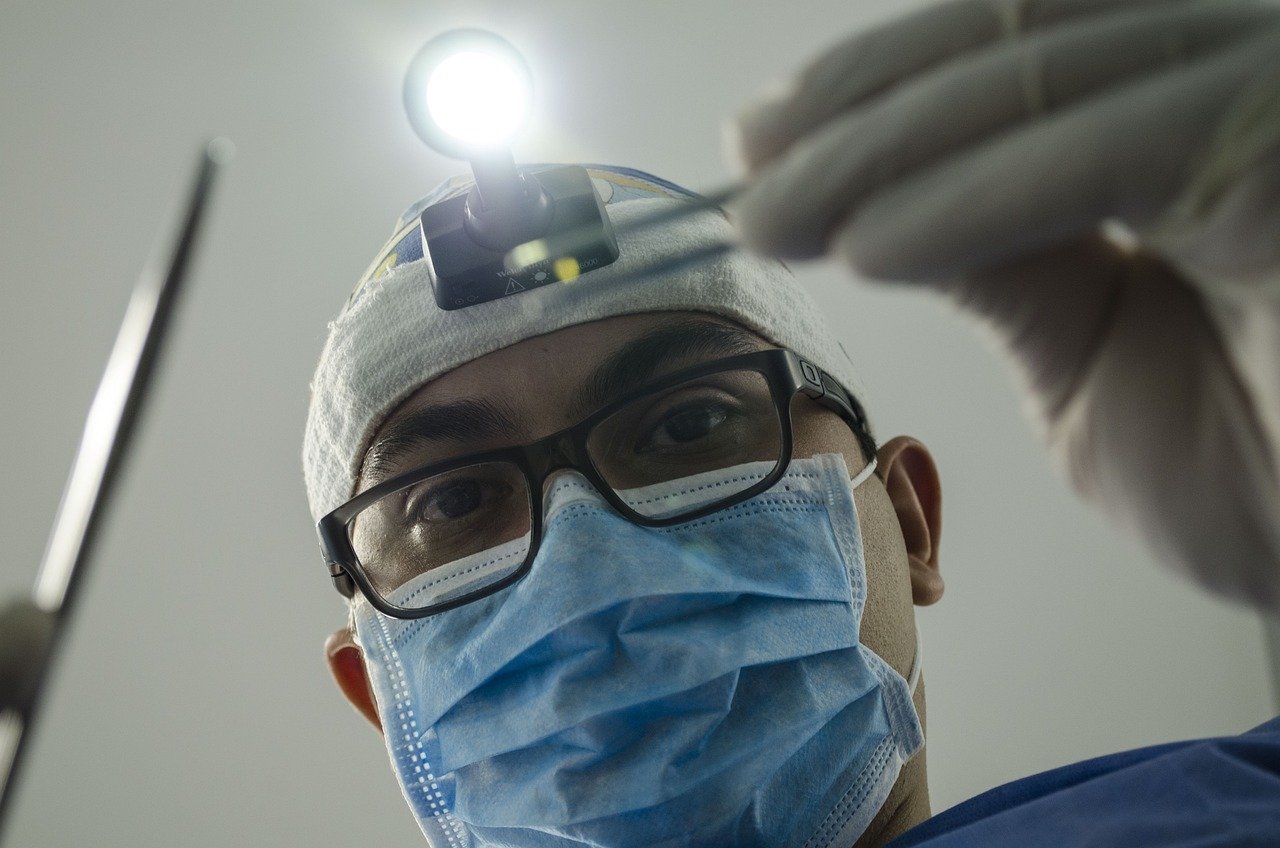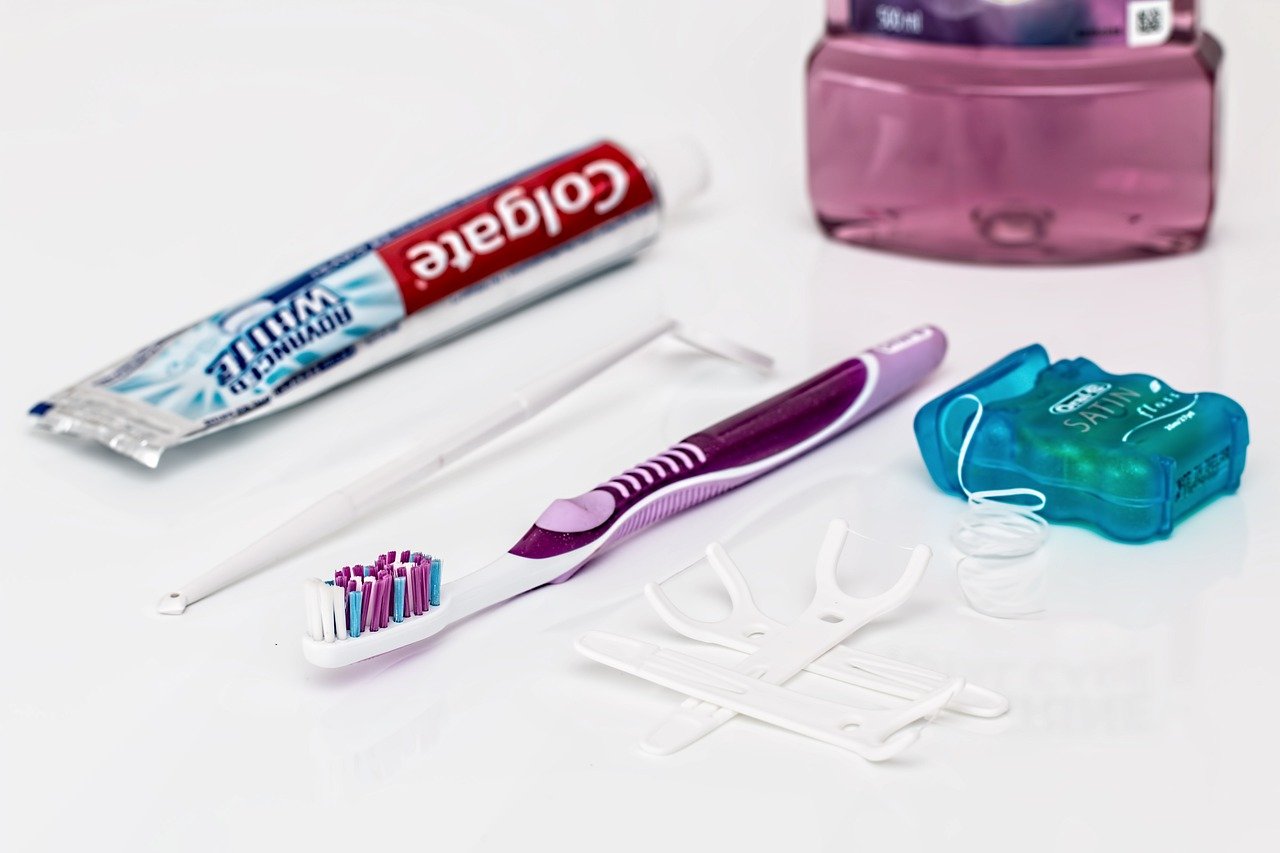If you’ve ever considered a career in the dental field, becoming a dental hygienist may be the perfect fit for you. As a dental hygienist, you’ll have the opportunity to work closely with patients, promoting oral health and providing essential preventive care. This article will guide you through the steps to becoming a dental hygienist in the USA, giving you a clear understanding of the educational requirements, licensing process, and valuable skills needed for success in this rewarding profession. Whether you’re starting your journey as a student or contemplating a career change, this comprehensive guide will help you navigate the path to becoming a dental hygienist.

This image is property of pixabay.com.
Education and Training
Earn a high school diploma or GED
The first step towards becoming a dental hygienist is to earn a high school diploma or its equivalent, such as a General Education Development (GED) certificate. A high school education provides a strong foundation in subjects like biology, chemistry, and mathematics, which are essential for pursuing a career in dental hygiene.
Complete a dental hygiene program
After obtaining a high school diploma or GED, the next step is to complete a dental hygiene program. These programs are typically offered at community colleges, technical schools, and universities. It is important to choose an accredited program recognized by the American Dental Association (ADA) to ensure quality education and eligibility for licensure.
Dental hygiene programs usually take about two to three years to complete and include both classroom and clinical education. They cover topics like dental anatomy, oral health, dental radiology, pharmacology, and dental hygiene techniques. Students also gain hands-on experience in dental clinics, where they practice dental hygiene procedures under supervision.
Obtain a state license
Once you have successfully completed a dental hygiene program, you will need to obtain a state license in order to practice as a dental hygienist. Each state has its own specific requirements for licensure, which typically include passing a national board examination and a state licensure examination.
To apply for licensure, you will need to submit the necessary documents and fees to the respective state board of dentistry. These documents may include your educational transcripts, proof of completing clinical requirements, and proof of passing the board examinations. It is important to research and understand the licensure requirements of your state to ensure a smooth application process.
Prerequisites
Complete prerequisite courses
Before applying to a dental hygiene program, it is important to complete the prerequisite courses required by the program. These courses may vary depending on the institution but commonly include subjects like biology, chemistry, anatomy, and physiology. Prerequisite courses provide the foundational knowledge necessary for success in dental hygiene education.
Gain relevant experience
In addition to completing prerequisite courses, gaining relevant experience can strengthen your application and increase your chances of being accepted into a dental hygiene program. Consider volunteering or working in a dental office or clinic to gain exposure to the field and demonstrate your commitment to the profession. This experience will not only enhance your application but also provide valuable insights into the day-to-day responsibilities of a dental hygienist.
Submit college applications
Once you have completed the prerequisite courses and gained relevant experience, it is time to submit your college applications. Research various dental hygiene programs and their admission requirements to ensure you meet all the necessary criteria. Pay attention to application deadlines and gather all required documents, such as transcripts, letters of recommendation, and personal statements. Submitting well-prepared applications will increase your chances of acceptance into your desired program.

This image is property of pixabay.com.
Choosing a Dental Hygiene Program
Research accredited programs
When choosing a dental hygiene program, it is crucial to research and select accredited programs that meet the standards set by the ADA. Accreditation ensures that the program provides quality education and meets the necessary requirements for licensure. Check the Commission on Dental Accreditation (CODA) website for a list of accredited programs in your area.
Consider program requirements
Each dental hygiene program may have specific requirements for admission, such as prerequisite courses, minimum GPA, and entrance exams. Consider these requirements when applying to programs to ensure you meet the eligibility criteria. Additionally, research the program’s acceptance rate and average class size to get an idea of the competitiveness and learning environment.
Evaluate program curriculum
Review the curriculum of the dental hygiene programs you are considering. Look for comprehensive coursework that covers dental anatomy, oral health, radiology, pharmacology, and dental hygiene techniques. It is also beneficial to choose a program that offers hands-on clinical experience, as this will allow you to develop practical skills in a real-world setting. Consider the balance between classroom and clinical education to ensure a well-rounded learning experience.
Look into clinical rotation opportunities
Some dental hygiene programs offer clinical rotations, where students have the opportunity to work in various dental settings, such as private practices, hospitals, or public health clinics. These rotations provide valuable practical experience and exposure to different patient populations. Consider programs that offer clinical rotation opportunities to gain a broader understanding of the dental hygiene profession and improve your clinical skills.
Enrollment and Orientation
Complete enrollment requirements
After being accepted into a dental hygiene program, you will need to complete the enrollment requirements specified by the institution. This may include submitting health records, immunization records, and background checks. It is important to complete these requirements in a timely manner to ensure a smooth transition into the program.
Attend orientation
Attending the program’s orientation is crucial for familiarizing yourself with the program’s policies, expectations, and resources. Orientation provides an opportunity to meet faculty, staff, and fellow students, and to ask any questions you may have. Take advantage of this orientation session to get off to a strong start in your dental hygiene program.
Familiarize with program policies and expectations
It is essential to familiarize yourself with the program’s policies and expectations to ensure a successful academic journey. Review the student handbook or manual provided by the program, which outlines important rules and regulations, grading criteria, attendance policies, and professional conduct expectations. Understanding and adhering to these policies will contribute to a positive learning experience and help you excel in your studies.

This image is property of pixabay.com.
Classroom Education
Attend lectures and discussions
Classroom education is a fundamental component of dental hygiene programs. Attending lectures and participating in discussions allows you to learn from experienced instructors and engage with your peers. Pay close attention to the material taught in lectures, take thorough notes, and actively participate in class discussions to enhance your understanding of the subject matter.
Participate in laboratory sessions
Laboratory sessions provide hands-on practice in dental hygiene techniques and skills. These sessions allow you to practice using dental instruments, performing dental cleanings, and mastering various dental procedures. Actively participate in laboratory sessions, ask questions, and seek guidance from instructors to refine your clinical skills and techniques.
Learn about dental anatomy and oral health
Dental hygiene programs cover topics such as dental anatomy and oral health. Understanding dental anatomy is crucial for identifying oral structures, recognizing abnormalities, and providing effective dental care. Learning about oral health enables dental hygienists to educate patients on proper oral hygiene practices and preventative measures.
Study dental radiology and pharmacology
Dental radiology and pharmacology are important subjects in dental hygiene education. Dental radiology teaches students how to take and interpret dental x-rays, which assist in diagnosing dental conditions. Pharmacology focuses on the study of medications used in dental treatment and their potential interactions and side effects. Mastery of these subjects is essential for providing safe and effective dental care.
Understand dental hygiene techniques
Dental hygiene techniques, such as scaling and root planing, tooth polishing, and applying fluoride treatments, are an integral part of a dental hygienist’s role. Dental hygiene programs teach students the proper techniques, tools, and equipment necessary to perform these procedures. Understanding and mastering these techniques is crucial for providing quality patient care.
Clinical Education
Gain hands-on experience in dental clinics
Clinical education provides students with valuable hands-on experience in dental clinics under the guidance and supervision of experienced dental professionals. This experience allows students to apply the knowledge and skills learned in the classroom to real patient care settings. It provides an opportunity to work with diverse patient populations, understand the challenges of dental practice, and develop professionalism and critical thinking skills.
Practice dental hygiene procedures
During clinical education, students have the opportunity to practice various dental hygiene procedures under the supervision of licensed dental hygienists. This includes dental cleanings, periodontal examinations, oral cancer screenings, and patient education. Through hands-on practice, students develop proficiency in performing these procedures and learn to provide individualized care based on patient needs.
Work with real patients under supervision
Clinical education involves working with real patients, which allows students to interact directly with individuals seeking dental care. Students learn to communicate effectively, establish rapport with patients, and address their concerns. Working under the supervision of experienced dental professionals ensures patient safety and provides guidance and feedback to help students improve their clinical skills.
Learn about patient care and communication
Patient care and communication skills are vital for dental hygienists. Clinical education focuses on developing these skills by teaching students effective communication techniques, active listening, and empathetic patient interactions. The ability to establish trust, educate patients on oral hygiene practices, and address their dental concerns is crucial for providing quality patient-centered care.
Board Examinations
Prepare for the National Board Dental Hygiene Examination
Before becoming a licensed dental hygienist, you must pass the National Board Dental Hygiene Examination (NBDHE). This comprehensive exam tests your knowledge and understanding of dental hygiene concepts, clinical reasoning, and critical thinking skills. It is important to allocate sufficient time to study and prepare for this examination, as it serves as a benchmark of your competence as a dental hygienist.
Take the written and practical exams
The NBDHE consists of a written examination and a clinical examination. The written examination assesses your understanding of dental hygiene principles, whereas the clinical examination evaluates your ability to apply dental hygiene procedures in a simulated patient setting. Both exams are designed to evaluate your knowledge, skills, and aptitude as a dental hygienist. Thorough preparation and practice are essential to perform well on these exams.
Receive passing scores
Passing the NBDHE is a key requirement for obtaining licensure as a dental hygienist. The scores required for passing may vary from state to state, so it is important to understand the passing criteria established by your state licensing board. Achieving passing scores on the NBDHE signifies that you possess the knowledge and skills necessary to provide safe and competent dental hygiene care.
Licensure
Apply for state licensure
After successfully completing the dental hygiene program and passing the board examinations, the next step is to apply for state licensure. Each state has its own licensing requirements, so it is important to research and understand the specific requirements of the state where you plan to practice. Contact the state board of dentistry to obtain the necessary application forms and instructions.
Submit necessary documents and fees
To apply for state licensure, you will typically need to submit various documents, such as proof of education, board examination scores, and letters of recommendation. Background checks and fingerprinting may also be required. Additionally, there will be fees associated with the application process, which vary depending on the state. Ensure that you compile all the necessary documents and submit them along with the appropriate fees within the specified timeframe.
Pass the state licensure examination
In addition to the national board examination, most states require dental hygienists to pass a state licensure examination. This examination is specific to the laws and regulations of the particular state and may include written or practical components. Successful completion of the state licensure examination demonstrates your understanding of the state’s dental practice act and your ability to provide dental hygiene services in accordance with the state’s regulations.
Continuing Education
Complete continuing education requirements
Continuing education is essential for dental hygienists to maintain and enhance their skills and knowledge in the field. Many states require dental hygienists to complete a certain number of continuing education credits within a specified timeframe to renew their licenses. These credits can be earned through attending workshops, seminars, online courses, or conferences. Staying updated with advancements in the field ensures that you provide the highest quality care to your patients.
Stay updated with advancements in the field
The field of dental hygiene is constantly evolving with new research, technologies, and treatment modalities. It is important to stay updated with advancements in the field to provide the best possible care to your patients. Engage in ongoing professional development by reading dental journals, attending webinars, and actively seeking opportunities to expand your knowledge and skills.
Attend conferences and workshops
Attending conferences and workshops is a great way to gain insight into the latest trends and developments in the field of dental hygiene. These events provide opportunities to learn from experts, exchange ideas with colleagues, and explore new techniques and products. Networking with professionals in the field can also lead to valuable career opportunities.
Join professional organizations
Joining professional organizations, such as the American Dental Hygienists’ Association (ADHA), provides access to valuable resources, networking opportunities, and continuing education opportunities. These organizations advocate for the profession, keep members informed about industry updates, and provide a platform for professional growth and collaboration. Active involvement in professional organizations demonstrates commitment to the field and can enhance career prospects.
Career Opportunities
Explore various career paths as a dental hygienist
Upon obtaining licensure as a dental hygienist, various career paths become available. Dental hygienists can work in a variety of settings, including private dental offices, public health clinics, hospitals, and educational institutions. They may also choose to specialize in areas such as periodontics, pediatric dentistry, or public health. Exploring different career paths allows dental hygienists to find the setting that aligns with their interests and goals.
Apply for job openings
Job opportunities for dental hygienists are projected to grow in the coming years, providing a favorable job market. When applying for job openings, tailor your resume and cover letter to highlight your relevant skills, education, and experience. Demonstrate your commitment to patient care, strong work ethic, and ability to work collaboratively with dental professionals. Additionally, network with local dental professionals and utilize online job boards to find potential employment opportunities.
Consider specialization options
Dental hygiene offers various specialization options for those looking to further their careers. Specializations such as dental hygiene education, public health administration, or research provide opportunities for growth and advancement. Consider pursuing additional education or certifications in your desired specialization to expand your knowledge and enhance your career prospects.
Advance to higher positions
With experience and further education, dental hygienists can advance to higher positions within the dental field. Some may choose to pursue roles such as dental practice management, teaching positions in dental hygiene programs, or research positions. Advancement opportunities often require additional education, such as a bachelor’s or master’s degree, as well as relevant experience and leadership skills.
In conclusion, becoming a dental hygienist requires a combination of education, training, and licensure. By earning a high school diploma or GED, completing a dental hygiene program, and obtaining a state license, you can enter this fulfilling and dynamic profession. Through prerequisite courses, gaining relevant experience, and submitting college applications, you can position yourself for acceptance into a dental hygiene program. Choosing an accredited program, attending orientations, and familiarizing yourself with program policies will set the stage for a successful educational journey. Throughout your education, both in the classroom and clinical setting, you will learn about dental anatomy, oral health, hygiene techniques, and gain valuable hands-on experience. Board examinations and state licensure are essential steps in becoming a licensed dental hygienist. Continuing education and professional development will keep you updated with advancements in the field and open doors to various career opportunities. Whether you choose to work in private practice, public health, or pursue specialization, the dental hygiene profession offers a fulfilling career with opportunities for growth and advancement.